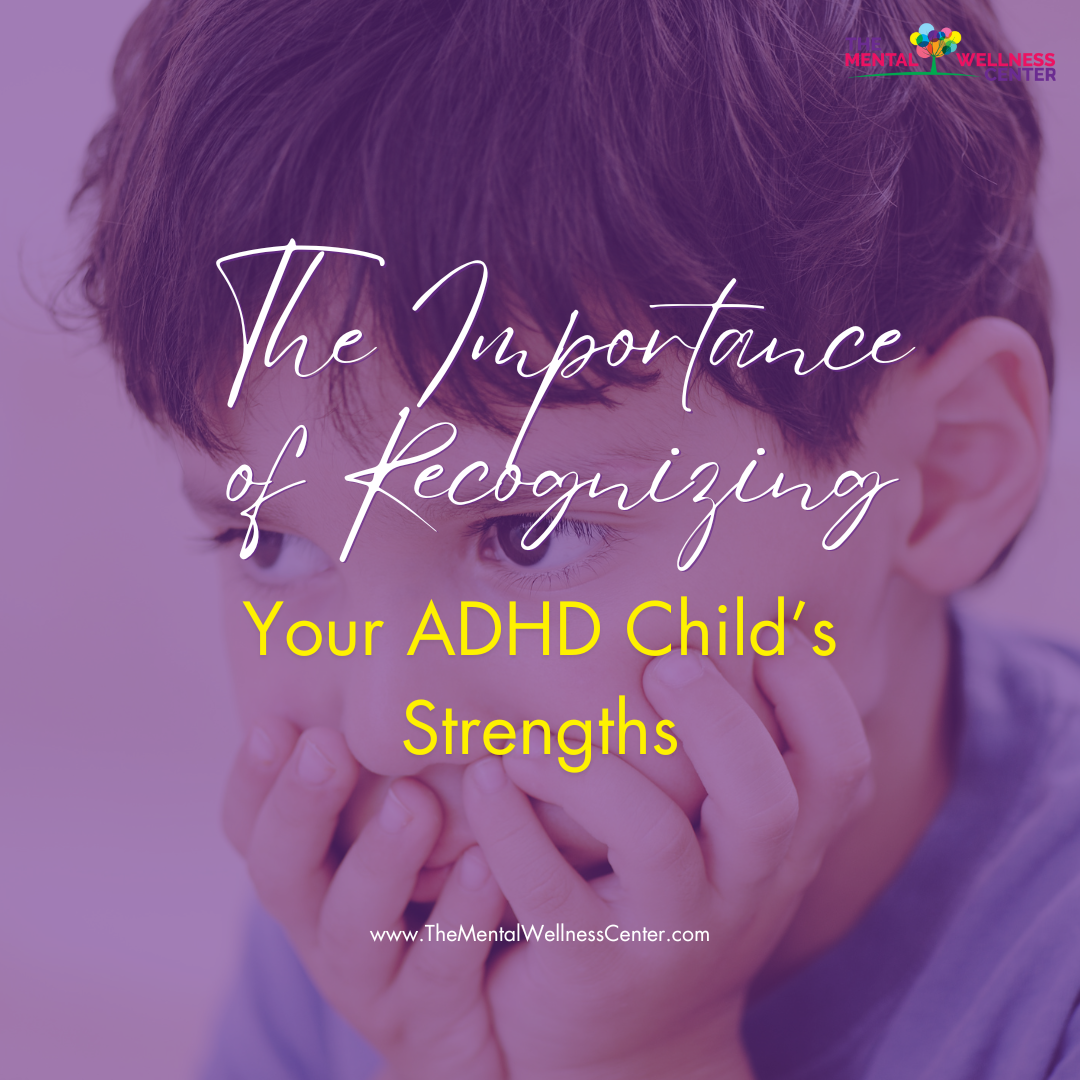The Importance of Recognizing Your ADHD Child’s Strengths
If you’re parenting a child with Attention Deficit Hyperactive Disorder (ADHD), the odds are that you’ve read countless books, spent hours online, and explored more support groups than you can count to gather up every bit of knowledge that you can on how to help your kiddo. You’re practically an expert on how ADHD affects kids' behavior. But, even armed with all the knowledge in the world, it can be difficult when emotions are high to understand that our kids who struggle with their ADHD symptoms aren’t choosing to misbehave. There has been, and continues to be, a negative stigma around ADHD. Kids who struggle to sit still, fidget, struggle to concentrate, who talk a lot, who are impulsive, or interrupt conversations, and those who struggle to regulate their emotions or have proportionally large reactions to seemingly small triggers can be labeled as “problem children” by peers, teachers, and even parents. It is important to note that the child is not deliberately scattered, demanding, aggressive, or lazy. ADHD, which is a neurological condition that is to blame. Which is why it is an unfortunate fact that kids with ADHD often receive a lot of punishment, which often creates hostility and resentment.
Research shows that criticizing a child is likely to make their symptoms worse.
Research supported by the National Institutes of Mental Health documented their three-year study involving 515 families (338 with children diagnosed with ADHD and 127 without) monitored the progression of ADHD symptoms through questionnaires completed by parents, teachers, and the children. The findings revealed a correlation between consistent critical parenting, characterized by frequent negative remarks, and the persistence of ADHD symptoms over time. it can be difficult to keep this in mind during the busy day-to-day hustle and bustle. It’s natural to focus on things that aren't going well for your child and on skills that need improving, but it’s just as important to see our child’s strengths. Knowing these strengths can help us build our kids' self-awareness and self-esteem. We can also use these strengths to work on the above-mentioned areas in ways that aren't as frustrating. Here are some ways to start:
Kids with ADHD often respond better to rewards and positive feedback than kids without the disorder.
These rewards can look like extra time playing a video game or the chance to choose the movie for the evening. Make that reward part of a verbal contract that applies to any task you want your child to do, like finishing his homework or cleaning his room. Other rewards might be physical affection, special snacks or treats, or small toys or collectible items.
Parents can change their own behavior by using the acronym SAIL.
S: Whenever you think of the annoying behavior, don’t see it as a bad behavior; see it as a symptom. Like if your child had a cold, a symptom would be their runny nose.
A: ADHD, after you’ve labeled the behavior a symptom, say to yourself, “ADHD” is a medical problem, not a behavior problem
I: It’s ok. Whatever your child is doing that annoys you, take a deep breath, and tell yourself, “it’s ok” because in the grand scheme of things, it probably is.
L: Listen. Listen to what your child is saying and respond positively. What you think is best for your child may not be what is best for them, so let your child help guide you to help understand how they interact with the world.
Help your child identify strengths.
Try making a strengths chain. It’s a cool activity that lets your child see strengths in a tangible way. Your child can also make an “accomplishments box.” It’s a fun way for kids to see what they’re doing well.
Take note of your child’s strengths and successes.
Watch your child in action and take notes on the successes (big and small) you notice and the strengths that helped your child succeed. (It helps to observe challenges, too.) It’s a good way to be able to say, “Here’s what I saw. I think you did that really well.”
It is challenging to help a child who struggles with ADHD symptoms. The good news is, you’re not in this alone. Finding the right therapist for you and your child can help the whole family find helpful support and guidance. To find a list of our providers who can help, click the button below.
To become a client, click the button below.

